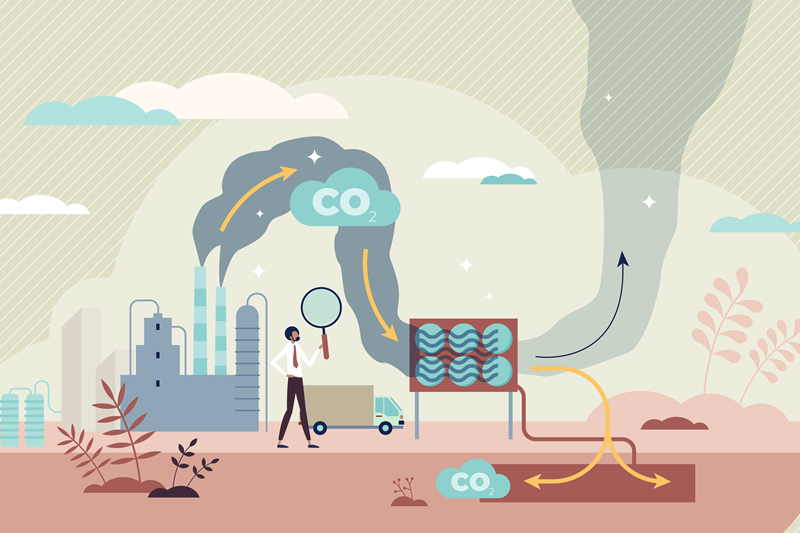Joint Venture Announced To Build Ship Based Carbon Capture Systems
26
Pooling their expertise, the joint venture endeavors to assist vessel owners in curbing CO2 emissions from both newbuild and existing ships. Shipboard CO2 capture holds tremendous promise as a technology, particularly in the North Sea, which is poised to witness a surge in CO2 shipping due to its proximity to densely populated regions of northern Europe. Bouman Industries and Conoship International, partners in the EverLoNG ship-based carbon capture project, have inked an agreement to establish a joint venture aimed at constructing ship-based carbon capture (SBCC) systems.

The EverLoNG project seeks to promote the adoption of SBCC by showcasing its effectiveness on LNG-fueled vessels and advancing it towards market readiness. According to the partners, incorporating a ship-based carbon capture system to capture CO2 from exhaust gases could potentially slash shipboard CO2 emissions by up to 95 percent. The captured CO2 can be cooled and stored onboard, with the possibility of being utilised onshore to produce synthetic methane.
Onboard carbon capture (OCC) encompasses a variety of technologies designed to capture carbon dioxide emissions emitted by ships during operation. In post-combustion systems, OCC involves the purification of exhaust gases to isolate CO2, which is then stored onboard in different forms including gas, liquid, or mineral for eventual offloading. In pre-combustion systems, carbon is separated from the fuel to produce hydrogen, which is then utilised in specialised energy conversion machinery.
The concept of onboard carbon capture is garnering increasing attention as a viable solution for reducing carbon emissions from ships. With the competition intensifying for green energy carriers like ammonia, hydrogen, and methanol both within the maritime sector and across other industries, the costs are expected to rise significantly. Onboard carbon capture presents an effective means of decarbonisation, enabling the continued use of established maritime fuels while mitigating environmental impact. Protea’s multi-gas FTIR technology is ideally suited to new processes involving carbon reduction, such as Carbon Capture and Storage (CCS).
#protea #emissions #monitoring #cems #ftir #gas #analysers #shipping #marine #carbon #capture
Other Articles
Carbon Capture Utilisation & Storage (CCUS) In 2026
16
Global Underground CO2 Storage Data Offers Hope Amid Rising Emissions
01
IMO Postpones Adoption Of Global Net-Zero Shipping Framework
04
Pioneering Carbon Capture Projects Ready For Construction
03
Methanol & Ammonia Deemed Ready As Zero-Emission Shipping Fuels
01
Carbon Capture Storage Reaching A Turning Point In Decarbonisation
13
CCS To Capture 15% Of Shipboard Carbon Emissions By 2050
29
Global Shipping Industry Struggles To Navigate Net Zero Transition
21
Carbon Capture Surges as Economics Policy & Industry Demand Align
14
GHG Emissions At Ports On The Rise Despite Initiatives
07
